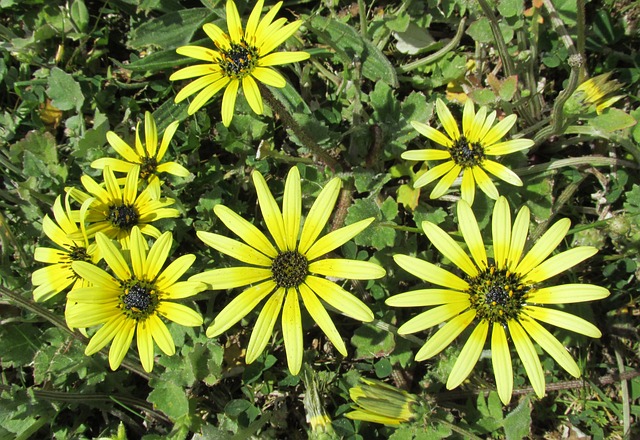
The article section "Unlocking THCA's Potential" discusses tetrahydrocannabinolic acid (THCA), a non-psychoactive compound found in cannabis that serves as the precursor to THC and is drawing scientific and market interest due to its potential therapeutic benefits. In EU countries, THCA's legal status is under scrutiny, with the Novel Food regulation defining its legality when derived from hemp and present in trace amounts. The evolving regulatory framework in the EU has led to an increase in THCA-enriched product availability, as consumers seek health benefits without psychoactive effects. Ongoing research is expected to expand knowledge on THCA's efficacy, particularly for its anti-inflammatory, neuroprotective, and other therapeutic properties, within the regulatory framework of EU countries. It is crucial for stakeholders to stay informed about the dynamic legal landscape surrounding THCA in Europe, as it varies across member states. Additionally, the section emphasizes the importance of sourcing high-quality THCA-rich hemp flowers that adhere to strict EU regulations, including THC content limits, and highlights the need for transparency and compliance with Good Agricultural and Manufacturing Practices to ensure product safety and efficacy.
Discover the emerging wellness phenomenon centered around THCA, a non-psychoactive compound found in the cannabis plant that’s gaining attention for its potential health benefits. As interest in natural remedies and holistic health continues to rise, THCA flower benefits are coming to light, offering a unique perspective within the realm of alternative medicine. This article delves into the scientific aspects of THCA, its legal status across various EU countries, and how it differs from other cannabinoids. We explore the implications of decarboxylation for unlocking its effects, the therapeutic potential supported by preliminary research, and practical advice for integrating THCA into wellness routines. With a focus on quality control and consumer safety, we navigate the complexities of THCA’s legal landscape within Europe and provide insights into patient experiences and future research directions. Join us as we unravel the science behind THCA and its place in the world of health and well-being.
- Unlocking THCA's Potential: A Closer Look at Its Rising Popularity
- THCA Flower Benefits: An Overview of Its Wellness Applications
- The Science Behind THCA: Understanding Its Compound Structure and Effects
- THCA Legal Status in EU Countries: Navigating the Legal Landscape
- How THCA Differs from Other Cannabinoids: A Comparative Analysis
- Sourcing Quality THCA Flowers: Tips for Consumers and Retailers
Unlocking THCA's Potential: A Closer Look at Its Rising Popularity
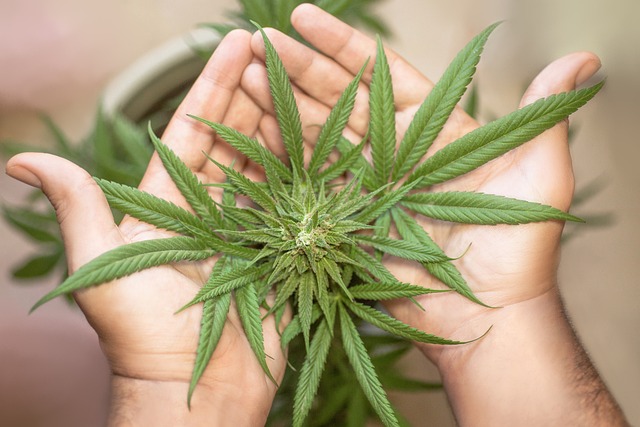
Unlocking THCA’s Potential offers a deep dive into the burgeoning interest surrounding this natural compound, which is the raw form from which tetrahydrocannabinol (THC), the primary psychoactive component in cannabis, is derived. As research continues to unveil the therapeutic properties of THCA, its potential applications are becoming increasingly recognized. THCA is non-psychoactive, contrasting with its converted form, THC, which means it may offer benefits without the traditional ‘high’ associated with cannabinoids. This distinction has piqued the interest of both researchers and consumers, particularly in EU countries where regulatory landscapes are evolving to accommodate hemp-derived products that contain such compounds legally.
The legal status of THCA in the European Union is a dynamic area, with individual member states interpreting and implementing regulations differently. In some EU countries, THCA is legal provided it is derived from hemp and contains less than 0.2% THC on a dry weight basis, aligning with the guidelines set forth by the European Commission’s Novel Food regulation. This has led to a surge in the production and consumption of products enriched with THCA, as consumers seek out alternatives that harness the potential health benefits of cannabinoids without psychoactive effects. As the legal framework becomes clearer, the popularity of THCA is set to rise further, with ongoing studies likely to shed more light on its applications and efficacy. This burgeoning interest underscores a significant shift in the perception and utilization of cannabinoids, highlighting the potential for THCA to play a pivotal role in the wellness industry across EU countries.
THCA Flower Benefits: An Overview of Its Wellness Applications

THCA, or Tetrahydrocannabinolic Acid, is a naturally occurring cannabinoid found in the Cannabis sativa plant that has garnered attention for its potential wellness applications. Unlike its more famous counterpart, THC (Tetrahydrocannabinol), THCA is non-psychoactive, meaning it does not induce the “high” commonly associated with cannabis consumption. As of recent years, THCA has been the subject of research for its therapeutic properties, particularly in EU countries where regulations have evolved to allow for the exploration of such compounds.
In EU countries where THCA-rich hemp flowers are legal, there is a growing interest in harnessing the benefits of this cannabinoid. Preliminary studies suggest that THCA may offer anti-inflammatory, neuroprotective, and analgesic effects, which could be beneficial for individuals seeking natural alternatives for pain management, inflammation reduction, and potentially even neurodegenerative diseases. The legality of THCA flowers varies across the EU, with some countries permitting their use as a dietary supplement or for medical purposes. As such, enthusiasts and health-conscious consumers are increasingly exploring the wellness applications of THCA flowers, often praising them for their potential to support overall wellbeing without the psychoactive effects typically associated with cannabis products.
The Science Behind THCA: Understanding Its Compound Structure and Effects
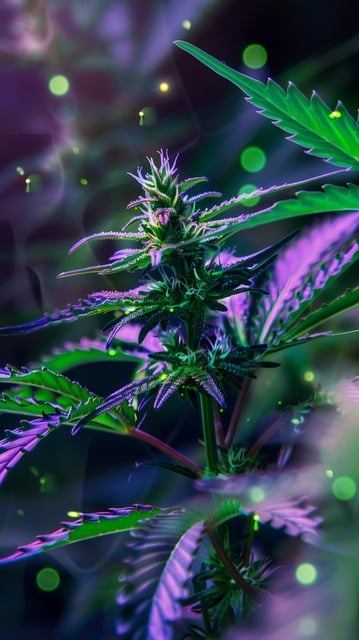
Tetrahydrocannabinolic acid A (THCA) is a naturally occurring cannabinoid found in the Cannabis sativa plant, which precedes tetrahydrocannabinol (THC), its more well-known psychoactive counterpart. THCA’s compound structure features an additional acidic carboxyl group (-COOH) at the R1 position on its molecular framework compared to THC. This structural difference is crucial as it renders THCA non-psychoactive, meaning it does not induce the ‘high’ commonly associated with cannabis.
In EU countries, the legal status of THCA-rich products varies, with some countries allowing the sale and use of hemp derivatives containing no more than 0.2% THC on a dry weight basis, provided they are derived from industrial hemp strains. The therapeutic potential of THCA is an area of increasing scientific interest. Preclinical studies suggest that THCA may offer anti-inflammatory, anti-nausea, anti-emetic (against nausea and vomiting), neuroprotective, and analgesic (pain-relieving) properties without the psychoactive effects of its decarboxylated form, THC. Research into the efficacy and safety profiles of THCA is ongoing, with findings indicating that it may have a broad range of applications in medicine and wellness, particularly for conditions where the psychoactive effects of THC are undesirable or contraindicated. As such, understanding the science behind THCA’s compound structure and its potential effects is not only academically fascinating but also has practical implications for the development of new therapeutic agents within the legal framework established in various EU countries.
THCA Legal Status in EU Countries: Navigating the Legal Landscape
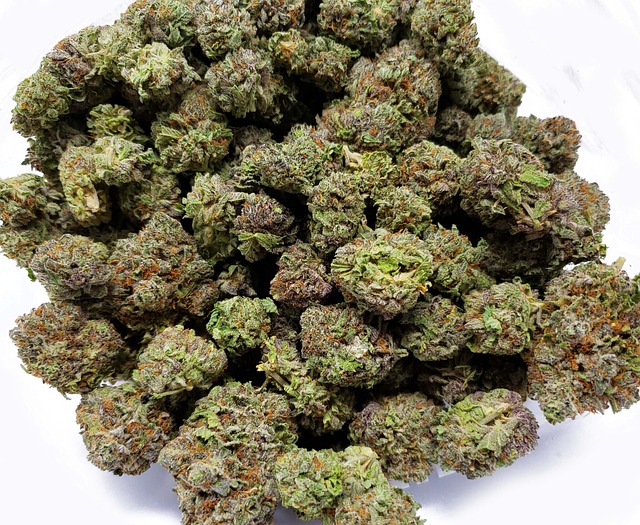
Delta-9 tetrahydrocannabinol (THC) is the most well-known cannabinoid, but another cannabinoid, tetrahydrocannabinolic acid (THCA), has garnered attention for its potential therapeutic benefits. As interest in THCA grows, understanding its legal status across European Union countries becomes increasingly important for researchers, consumers, and policymakers alike.
The legal landscape of THCA in the EU is a complex tapestry woven from various legislative threads. Generally, THCA falls under the same regulatory framework as other cannabinoids found in Cannabis sativa, as outlined by the European Commission’s Novel Food Regulation and national legislation. In some EU countries, THCA-rich products are legally available for various uses, including health and wellness purposes, provided they meet the specified regulatory criteria. Countries like Germany, Italy, and the Netherlands have more lenient policies regarding cannabinoids, which has led to a burgeoning market for THCA products. However, it’s crucial for consumers and businesses to stay updated on the evolving legal status of these compounds, as regulations can vary significantly from one country to another within the EU. Navigating this legal terrain requires careful attention to the specific laws of each member state, as well as an eye on ongoing legislative developments at both the national and EU levels.
How THCA Differs from Other Cannabinoids: A Comparative Analysis
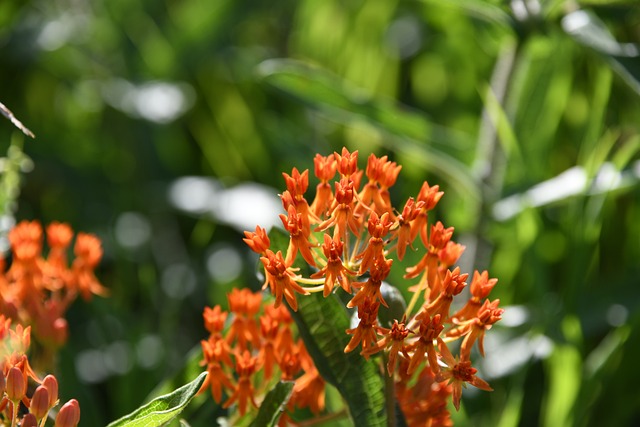
Tetrahydrocannabinolic acid A (THCA) is one of the many cannabinoids found within the Cannabis sativa plant and has garnered attention for its potential therapeutic benefits. Unlike its well-known counterpart, delta-9-tetrahydrocannabinol (THC), THCA does not exhibit psychoactive properties, making it a more palatable option for users seeking the health effects of cannabis without the high. The legal status of THCA varies across EU countries; while some have legalized medical and recreational use of cannabis containing THCA, others maintain strict regulations that differentiate between THC and THCA.
The distinct chemical structure of THCA, which contains an additional acidic carboxyl group (COOH) compared to THC, influences its interaction with the body’s endocannabinoid system. This carboxyl group alters how THCA binds to cannabinoid receptors, potentially offering different effects than THC. For instance, preliminary studies suggest that THCA may have anti-inflammatory and neuroprotective properties, which could be beneficial in managing pain, inflammation, and certain neurological disorders. Unlike CBD (cannabidiol), another non-psychoactive cannabinoid, THCA also shares some pharmacological similarities with THC but without the psychotropic effects. This nuanced difference makes it a subject of interest for researchers and consumers alike, especially as its legal status becomes clarified in EU countries, allowing for more widespread exploration of its benefits.
Sourcing Quality THCA Flowers: Tips for Consumers and Retailers

When exploring the benefits of THCA flowers, discerning consumers and retailers alike must prioritize sourcing high-quality products that comply with local regulations. In the European Union, THCA-rich hemp flowers are legal provided they contain less than 0.2% THC on a dry weight basis, according to the European Industrial Hemp Association (EIHA). This legislative framework is crucial for ensuring safety and quality within the market. For consumers, it is imperative to research and select reputable suppliers who provide certificates of analysis (COAs) from accredited third-party laboratories. These COAs confirm the THC content, as well as other cannabinoid profiles, terpene content, and the absence of contaminants like pesticides or heavy metals. Additionally, transparency in the sourcing process, including detailed information about the cultivation practices and extraction methods used, is a hallmark of trustworthy vendors. Retailers should establish relationships with suppliers who adhere to Good Agricultural Practices (GAP) and Good Manufacturing Practices (GMP). By doing so, they can offer consumers a product that meets stringent quality standards and is compliant with the EU’s regulations on novel foods. In turn, this commitment to quality helps build customer trust and credibility in the marketplace, which is essential for the sustainable growth of the hemp industry within the EU.
THCA, or Tetrahydrocannabinolic acid, has garnered significant attention within the wellness community for its potential benefits and as a precursor to the well-known cannabinoid THC. This article has explored various facets of THCA, from its emerging popularity to the scientific intricacies of its compound structure and effects. A key takeaway is that THCA offers a range of wellness applications and holds promise for those seeking alternatives to traditional treatments. The legal landscape regarding THCA in EU countries presents a nuanced picture, with varying regulations that consumers and retailers must navigate carefully, as discussed in ‘THCA Legal Status in EU Countries.’ When considering THCA’s differences from other cannabinoids, it becomes evident that its unique properties set it apart. For those interested in incorporating THCA into their wellness routines, understanding where to source quality THCA flowers is paramount. As the research on THCA continues to evolve, its potential as a beneficial compound within the cannabinoid spectrum remains an area of growing interest and importance.






